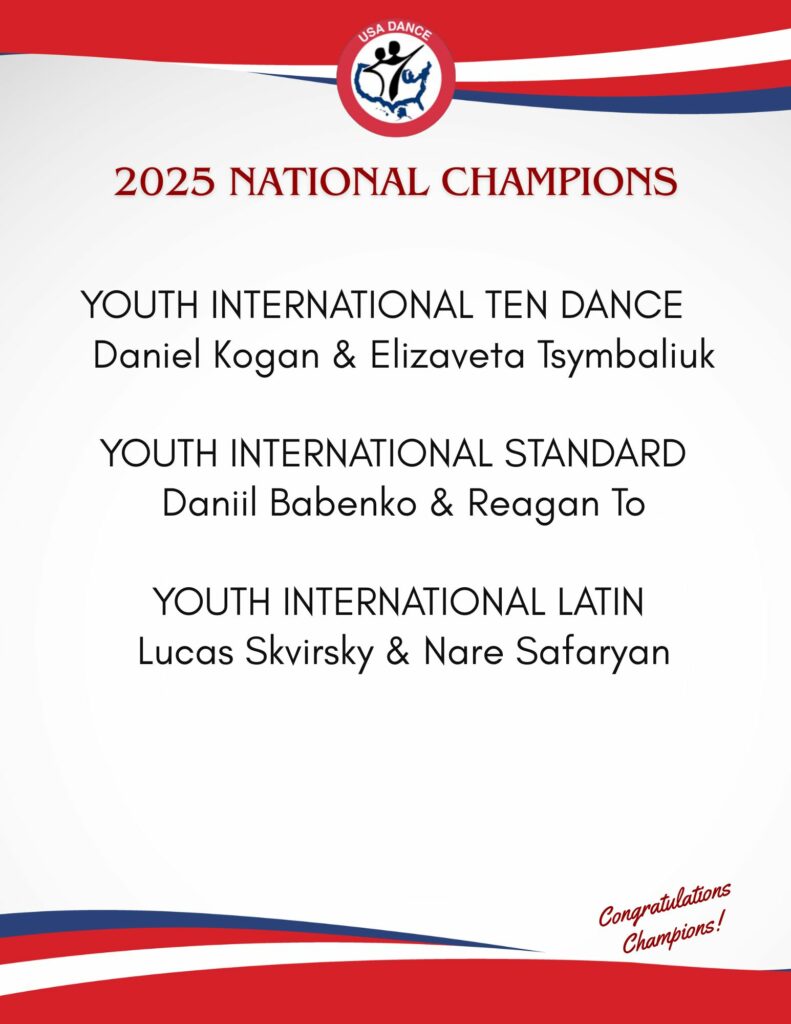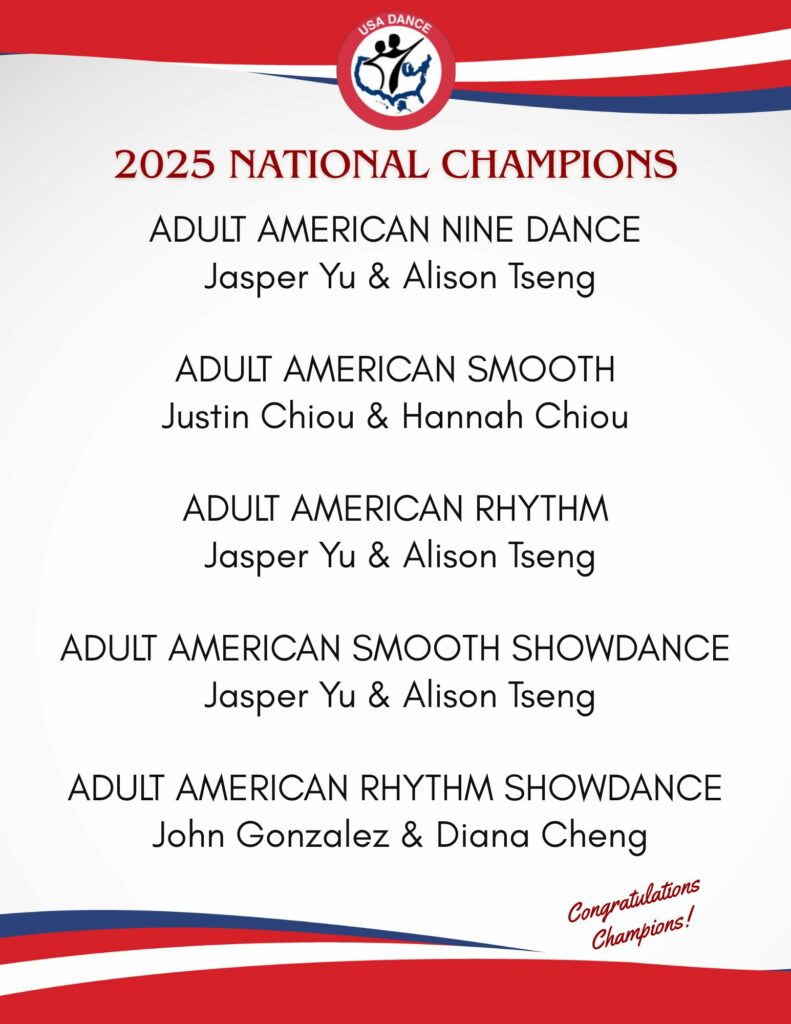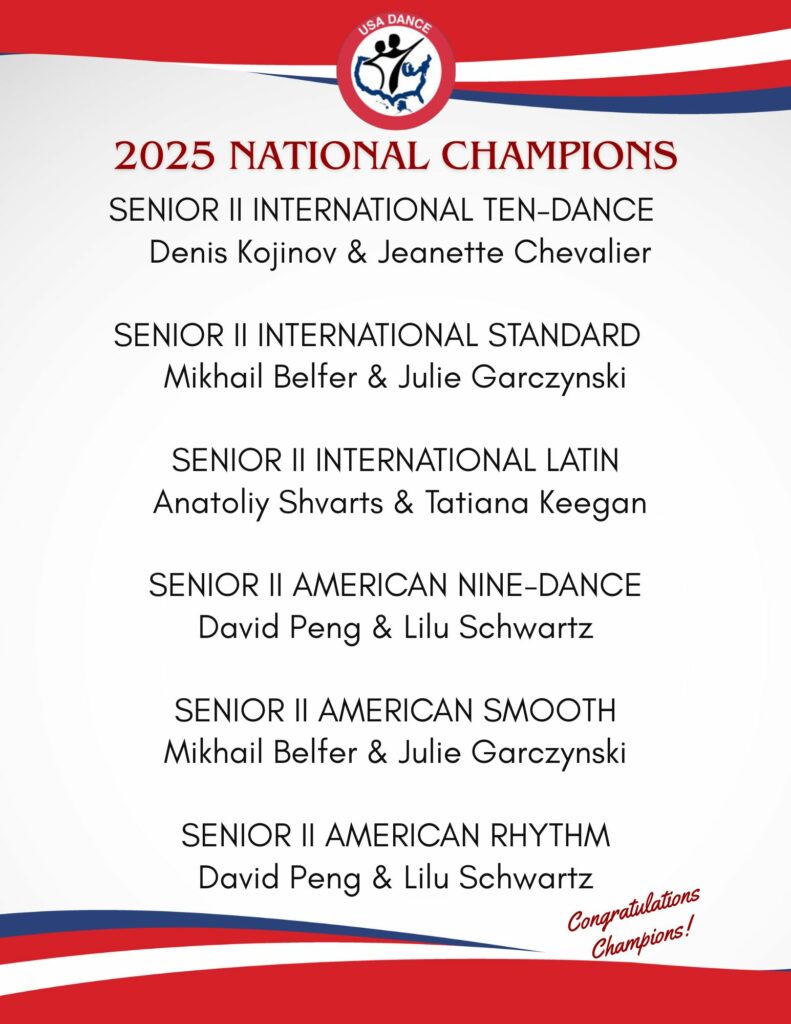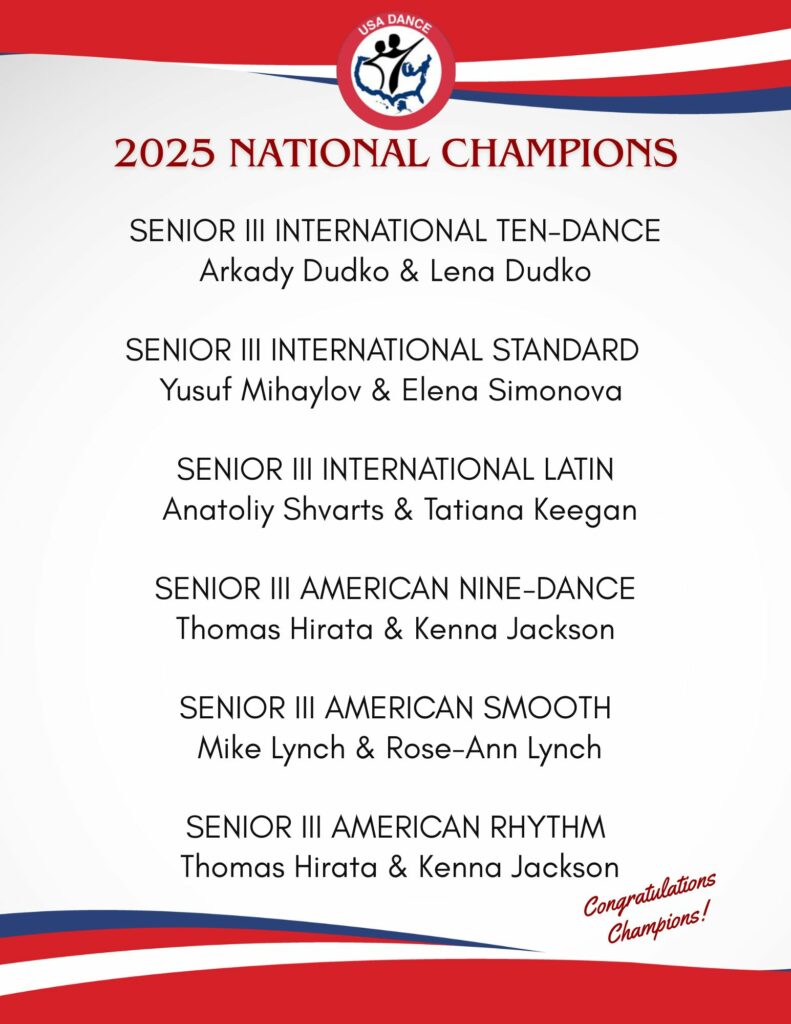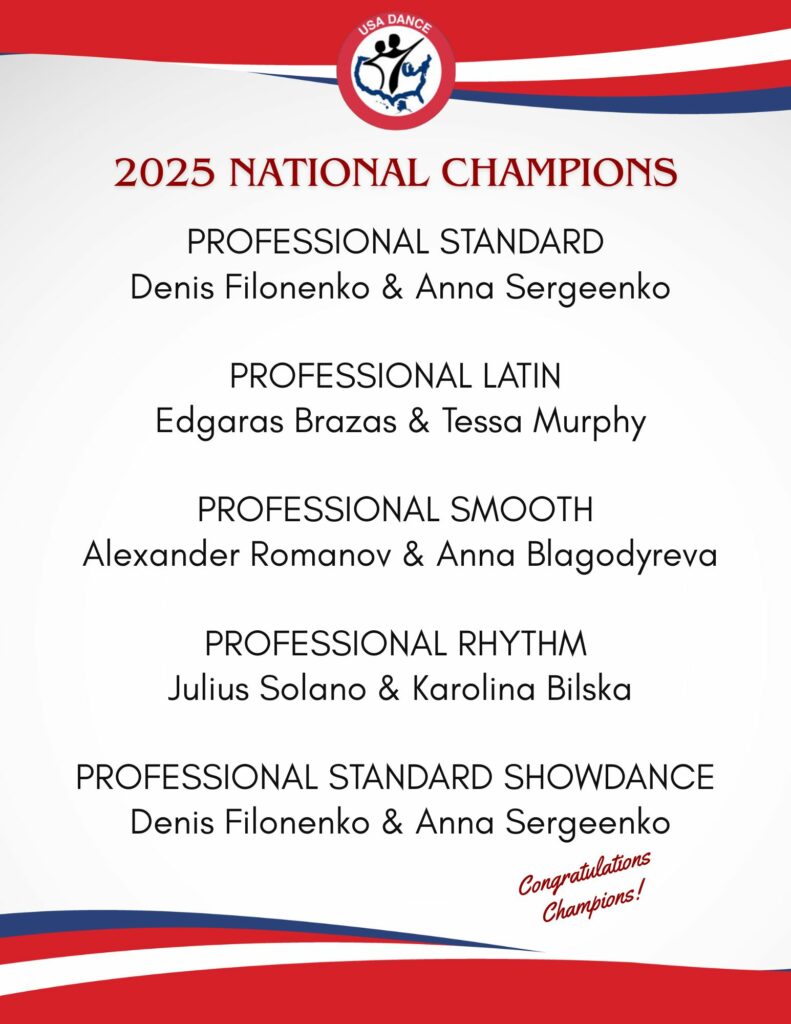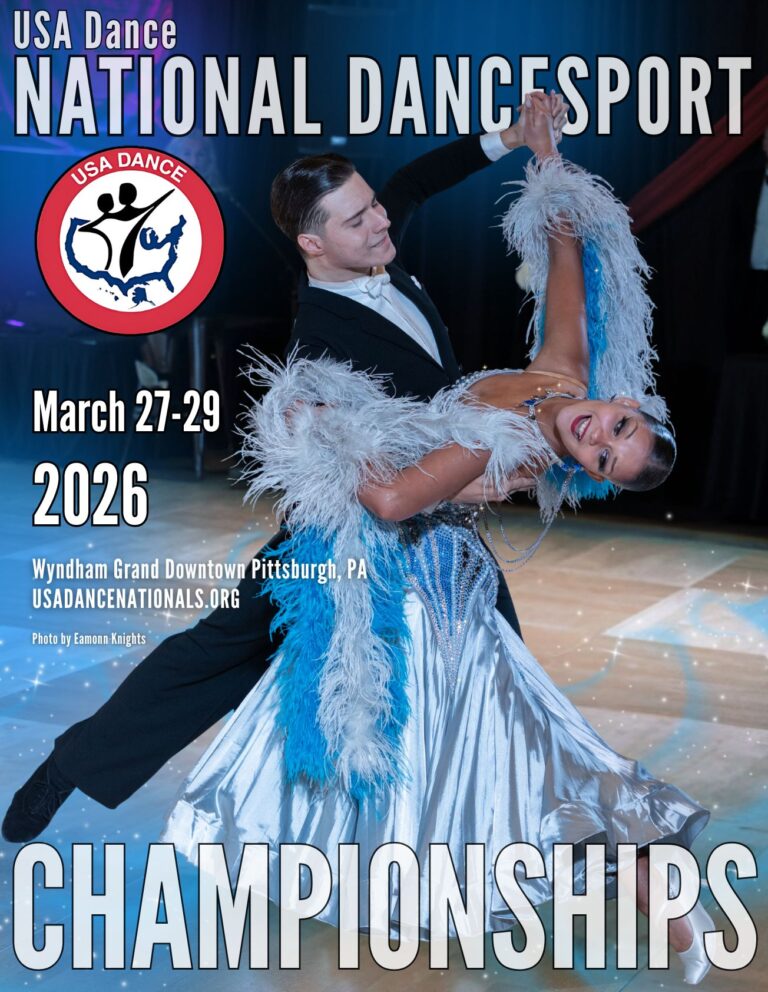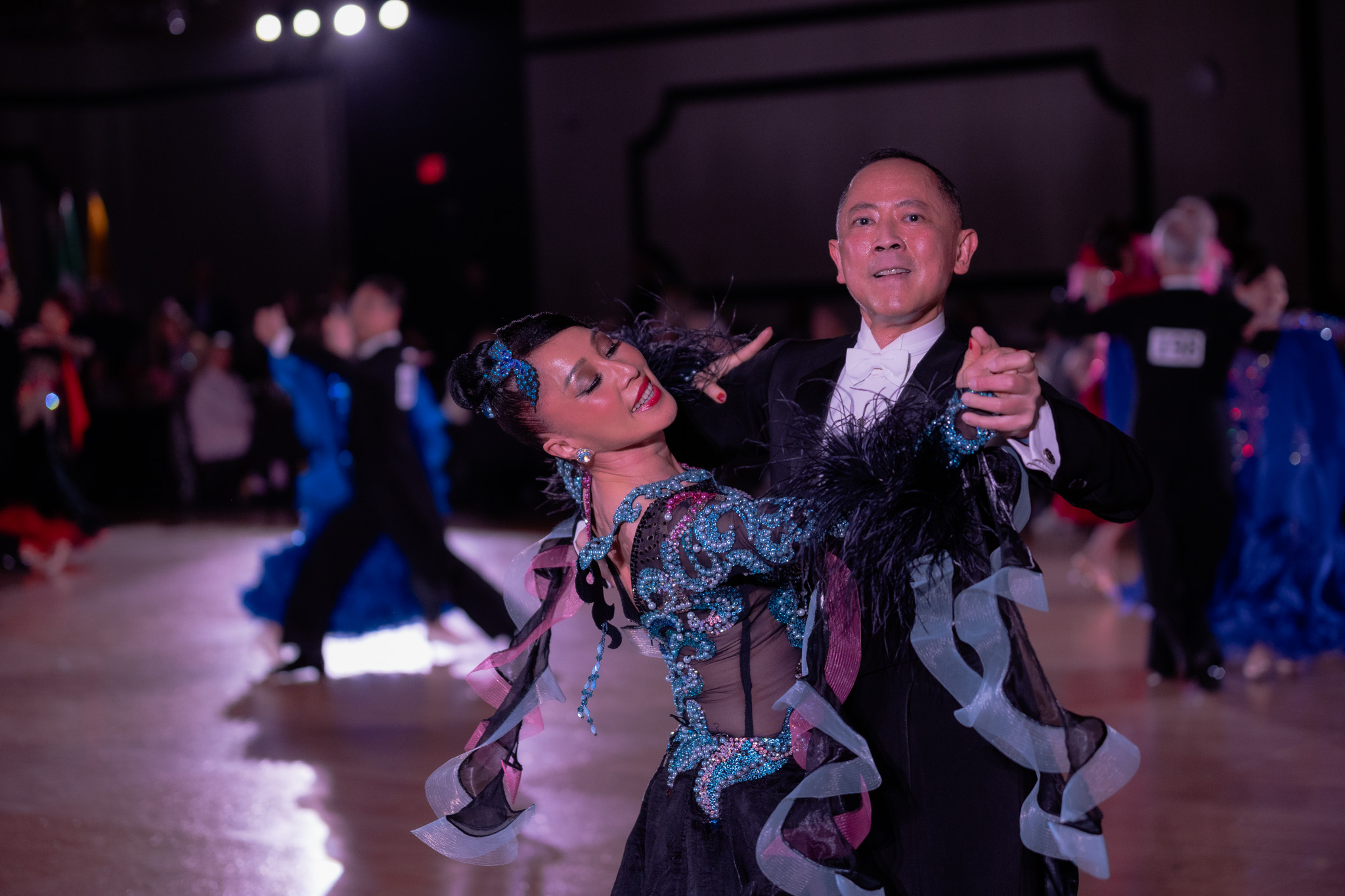Doping Control, the terminology in sport that refers to drug testing for performance enhancing substances, is the process of collecting samples for analysis, as described in the international standards of the World Anti-Doping Agency and specific International Federations.
The anti-doping regulations are intended to maintain a level playing field of competition where performance is the natural capability of the athlete, not performance enhanced by drugs. USA Dance follows these standards as does the World DanceSport Federation (WDSF). All athletes, officials, managers, trainers, and other participants in USA Dance competitions must agree to and comply with the provisions of the current version of The Code (WDSF Anti-Doping Code). USA Dance doping control requirements are provided on the USA Dance Nationals website at https://usadancenationals.org/anti-doping.
Adhering to the anti-doping rules means not ingesting or injecting any prohibited substances, which include stimulants, steroids, narcotics, cannabis, and hormones; not using any prohibited methods; signing the required Anti-Doping Consent Form at competitions; and taking all required drug tests at competitions. The intravenous (IV) infusion and/or injection of more than 100mL per 12-hour period of any substance is a prohibited method, even if the substance itself is not prohibited, unless it is received while being treated at the hospital, during surgery, or during clinical diagnostic investigations. It is the competitor’s responsibility to test free of all prohibited substances. Competitors may be taking prescribed or over-the-counter medications that are on the prohibited substances list for managing medical conditions. Supplements sold in “health food” stores may also contain ingredients that are on the prohibited list.
If a competitor is taking a medication on the prohibited substances list for a legitimate medical reason, the athlete must obtain a Therapeutic Use Exemption certificate (TUE), which is granted by an anti-doping organization, for a set prohibited substance, in certain dosages, with a limited period of validity. According to the WDSF website, “An application for a TUE must be based on a documented medical condition and diagnosis and the TUE will only be granted under strict criteria laid out in the International Standard of TUEs.” Once obtained, this certificate must be submitted 30 days or more before the entered competition. If the medication is prescribed less than 30 days before the event, the athlete should notify the USA Dance Anti-Doping Chair immediately and proceed with obtaining the TUE.
The following athletes must obtain a TUE from WDSF: Athletes in the WDSF International Registered Testing Pool (IRTP) and Athletes participating in an International Event and/or included in the top 250 of the WDSF Ranking List for which a TUE granted pursuant to the WDSF Rules is required. Completed forms are to be submitted to the Chair of the WDSF Anti-Doping Commission. Athletes who don’t belong to the aforementioned category must obtain a TUE from USADA.org. All United States athletes with TUEs must submit them to the USA Dance Anti-Doping Chair.
The Global DRO site is a valuable resource for determining whether an individual’s medications are on the prohibited substances list. A “Sport” category must be provided to get the tool to work, and the sports listed on the site do not include DanceSport. Figure skating is a reasonable substitute. In the “Search for” box, enter the name of the medication you wish to check. Once the name of the medication appears, click on the medication name and it will tell you whether it is or is not prohibited. For supplements it will be necessary to enter one ingredient at a time.
According to the Global DRO site, Cannabidiol (CBD) is no longer prohibited out of competition. However, in competition it is conditional. CBD products extracted from cannabis plants contain varying concentrations of THC, which remains a prohibited substance and could cause a positive anti-doping test. As such, the use of any CBD product is at the athlete’s own risk.
Refusal to comply with the administration of doping controls, which includes refusal to sign the Anti-Doping consent form or refusal to take a drug test if selected, will result in the immediate suspension of an Athlete. An in-competition doping infraction automatically leads to the disqualification of the individual’s and partnership’s results obtained in that competition with all resulting consequences, including forfeiture of any medals, points, and prizes. In the event of a dancer from a formation team being disqualified, this disqualification extends to the entire formation team. The penalty for an in-competition positive test for a prohibited substance includes a mandatory two-year suspension from USA Dance for a first offense. For a second offense, the suspension is for life.
The way to meet USA Dance Anti-Doping standards is straightforward: Know the rules. Check your medications against the prohibited substances list. Fill in the required forms and submit a TUE, if required. Without the use of performance enhancing substances, the winner is truly the best Athlete on the floor.



